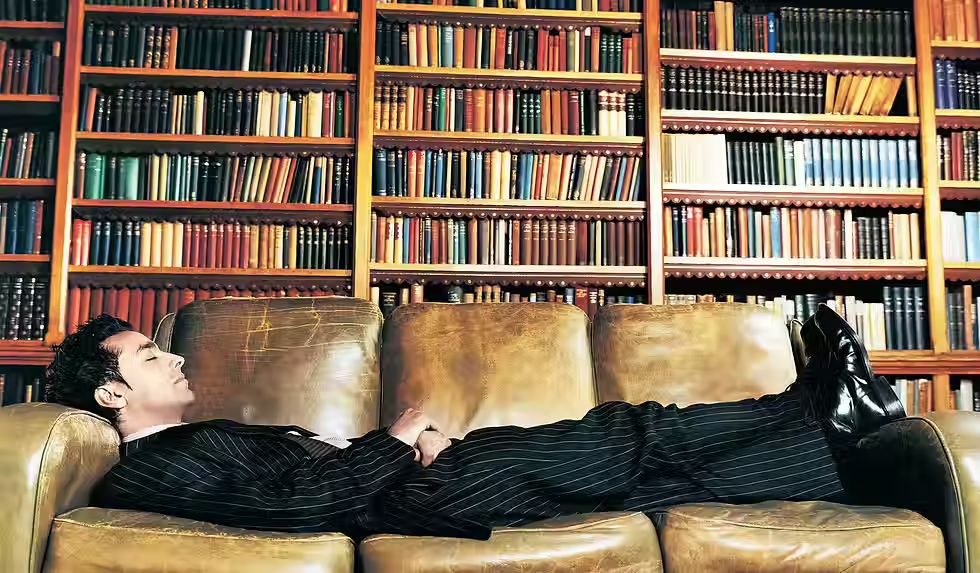Sleep Like a CEO: Night Routines of High Performers Who Stay Healthy
- MedWords Editorial

- Aug 16, 2025
- 3 min read

When you think of CEOs or high achievers, it’s easy to imagine relentless schedules, late-night emails, and endless to-do lists. But here’s a secret that might surprise you: many top performers guard their sleep as fiercely as they guard their time. Why? Because sleep isn’t just rest; it’s a strategy. It’s what fuels their focus, creativity, and decision-making power.
So, how do high performers set themselves up for restorative sleep in a world full of pressure and deadlines? Let’s explore some of their night routines and how you can borrow these habits for your own life.
The Science of Why Sleep Matters for Performance
Sleep is not wasted time. Studies show that deep and REM sleep improve memory consolidation, emotional balance, and even problem-solving. Neuroscientists call it the brain’s “cleaning cycle,” where toxins are flushed out, and new neural pathways are strengthened.
For leaders making complex decisions, a good night’s sleep is as important as any meeting or strategy session. Skimping on it doesn’t just cause fatigue; it can reduce creativity, weaken immunity, and increase stress.
Night Routines That High Performers Swear By
1. Digital Sunset
Many high achievers have a “tech cutoff” time, usually an hour before bed. Research shows blue light from phones and laptops suppresses melatonin, the hormone that regulates sleep. Instead of scrolling, they use this time for journaling, reading, or even reviewing their day on paper. Arianna Huffington, for example, famously removed her phone from her bedroom after collapsing from exhaustion.
2. Consistent Bedtimes
Sleep experts emphasize consistency over duration. Going to bed and waking up at the same time trains your circadian rhythm, making it easier to fall asleep naturally. Jeff Bezos has shared that he prioritizes eight hours of sleep, aiming for consistency even with a busy calendar.
3. Evening Wind-Down Rituals
CEOs often rely on calming practices to signal to the body that it’s time to rest. These include:
• Light stretching or yoga to release tension
• Meditation or breathing exercises to quiet the mind
• Herbal teas like chamomile or ashwagandha blends
• Writing down tomorrow’s tasks to offload mental clutter
By creating rituals, they make sleep a predictable part of their success strategy, not an afterthought.
4. Optimized Sleep Environments
High performers treat their bedroom like a recovery chamber. This means:
• Keeping the room dark and cool (between 18–20°C is ideal)
• Investing in supportive mattresses and pillows
• Using blackout curtains or sleep masks
• Minimizing noise with white noise machines or earplugs
When sleep is non-negotiable, the environment becomes part of the performance toolkit.
5. Nutrition and Timing
Late-night heavy meals, caffeine, and alcohol disrupt sleep cycles. Many achievers stop caffeine after 2 p.m. and avoid eating large meals close to bedtime. Some even follow calming rituals like drinking warm golden milk or magnesium-rich snacks (like nuts) to promote relaxation.
Lessons You Can Apply Tonight
You don’t need to run a company to sleep like a CEO. Here’s a simple starter routine:
1. Set a tech curfew: turn off screens an hour before bed.
2. Do a brain dump: write down tomorrow’s top priorities.
3. Create a ritual: stretch, sip tea, or read something light.
4. Optimize your environment: make your bedroom dark, cool, and quiet.
5. Stay consistent: aim to sleep and wake up at the same time daily.
Small changes, practiced consistently, build the foundation for better rest and higher energy.
The Takeaway
The most successful people don’t sacrifice sleep; they honor it. Their night routines prove that being well-rested is not a luxury, but a performance tool. By making simple shifts in your routine, you can wake up clearer, calmer, and more prepared to tackle your day like a high performer.
In the end, success isn’t just about what you do during the day; it’s also about how you prepare at night.



Comments